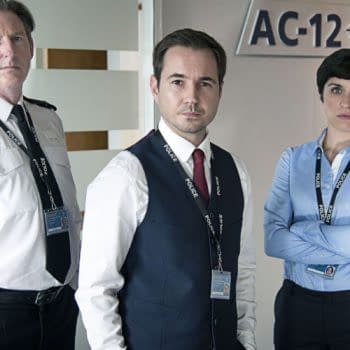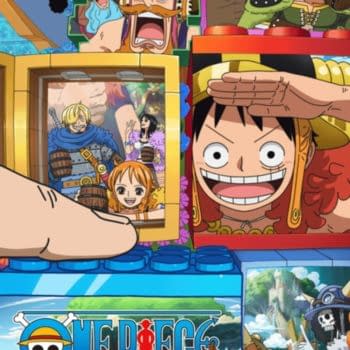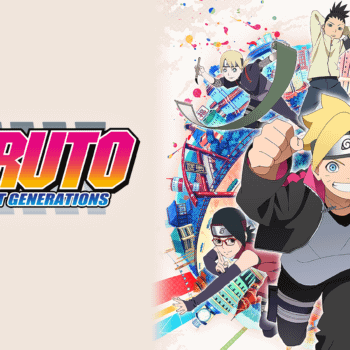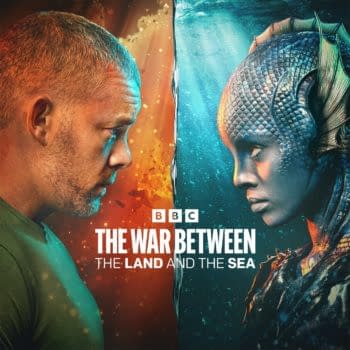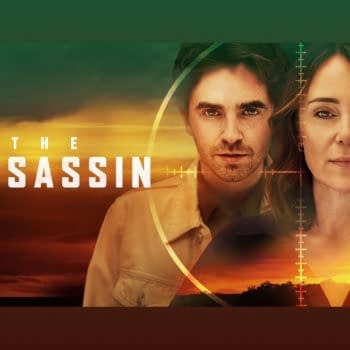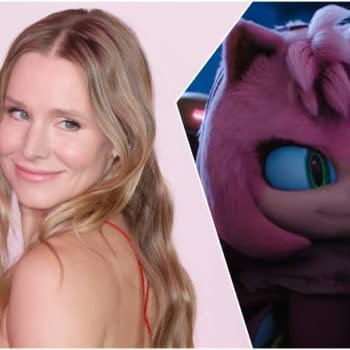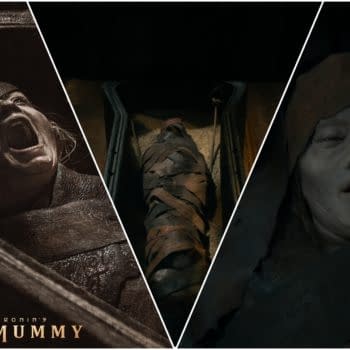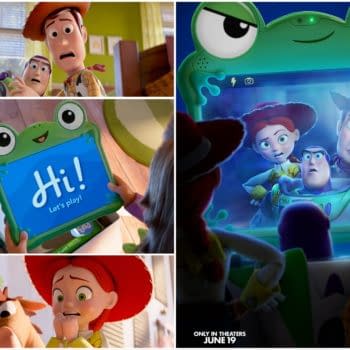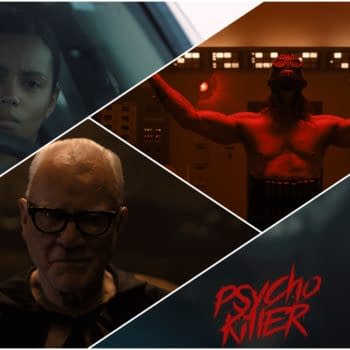Posted in: Movies, Review | Tagged: christopher nolan, Godzilla Minus One, Monarch, oppenheimer, Ryunosuke Kamiki, Takashi Yamazaki, Toho
Godzilla Minus One: One of 2023's Best Movies, Unlike US Versions
Godzilla Minus One is one of the best movies of 2023: intense, heartwrenching, and a companion to Christopeher Nolan's Oppenheimer
Article Summary
- "Godzilla Minus One": a standout 2023 film paralleling Nolan's "Oppenheimer".
- Takashi Yamazaki delivers a profound, politically aware Godzilla tale.
- Deeply emotional narrative eclipses Hollywood's glitzy monster flicks.
- Explores Japan's wartime psyche, karmic themes, and human survival.
Godzilla Minus Zero might be the best Godzilla movie, but also one of the best movies of the year. It's a remake of the original 1954 story but without the censorship that prohibited any political commentary then. It's not a sequel to any past Godzilla movie but a standalone with its own story that you can watch without knowing anything about Godzilla. Writer, director, and VFX creator Takashi Yamazaki has crafted a poignant, heartfelt blockbuster that stands alongside Christopher Nolan's Oppenheimer as twin meditations about the horrors of war and the atomic bomb in 2023. You should watch it after you watch Oppenheimer. It lives up to the hype and more.
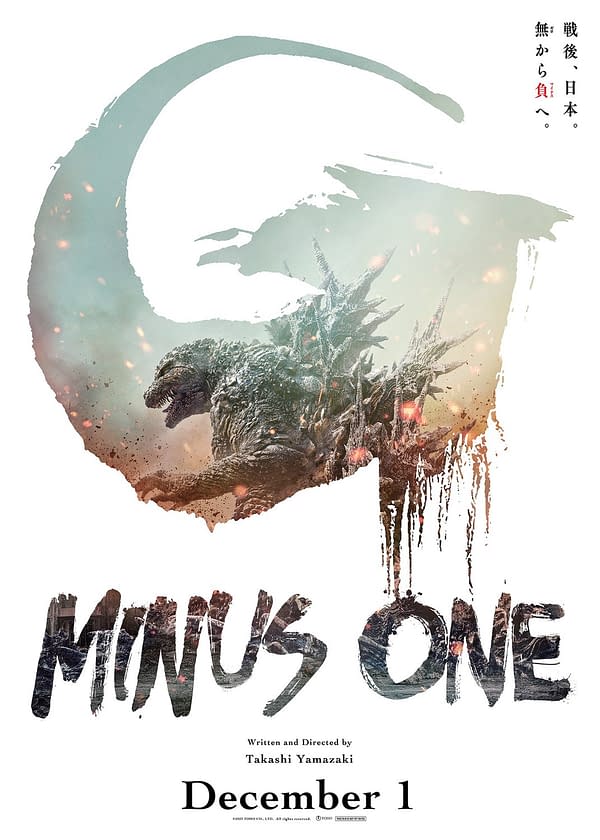
A Buddhist Parable and Anti-War Movie
Ryunosuke Kamiki carries the whole movie as Koichi Shikishima, a young kamikaze pilot in the final days of World War II who fakes technical issues with his plane and lands it at an island base for repairs so he can avoid dying on a futile mission when everyone on the frontlines knows Japan is going to lose. There, he encounters a giant dinosaur-like lizard the locals call "Godzilla" (or "Gojira" per the original Japanese name) that decimates the base and kills everyone but him and Tachibana, the chief mechanic. Suffering from Survivor's Guilt and PTSD, Shikishima goes home to Tokyo at the end of the war to find the city flattened by US bombs and his parents dead. Shikishima encounters Noriko (Minabi Hamabe), a young woman whose family is also dead, who carries a baby her dying neighbor left in her care. Three years later, the three have formed a found family as Japan slowly rebuilds. Shikishima finds work as a minesweeper clearing the sea of explosives planted by both the US Navy and Imperial Army during the war when US testing of another atom bomb in the Pacific Atoll mutates the monster that Shikishima encountered before, and the larger, angrier, radioactive Godzilla begins a rampage in Japan, threatening the country with total annihilation. Japan had been reduced to the status of "zero" in the war, and now the destruction of Godzilla threatens to bring Japan to "minus one." For Shikishima, the horrors of the war and his own guilt are embodied by Godzilla as he sees this as his karmic reckoning. It could also be read as Japan's as well. This Godzilla is not the cute, cuddly version from the 1970s movies that symbolized the domestication of nuclear power when nuclear plants were built. This version is the embodiment of the Bomb, a rage-filled alpha predator bent on claiming its dominance, the worst version of Karma imaginable.
An Emotionally Intense Godzilla Movie – Who Would Have Expected This?
Unlike the Legendary movies from Hollywood, Godzilla Minus One is a deeply emotional story with relatable human characters who aren't the contrived wannabe-cool characters from the current Monarch movies and TV shows. It's about ordinary people trying to live in wartime and the threat of endless war. Hollywood would never dare make a story like this – it's about a broken, defeated people who were beaten in a war and feel helpless in the wake of imminent destruction. Hollywood needs to make its heroes cool and in control, as seen in the Monarch movies. It could only be made by a Japan that still remembers the trauma of being defeated in war, devastated, and abandoned by their government, and a surprising rebuke of the old Japanese notion of dying for glory and instead pushes for fighting to live and for everyone to live. No one in the movie is a member, son, or daughter of a cool secret society with cool weapons against giant monsters. These are civilians and war veterans just trying to survive. There's no fancy pseudo-science for ray guns or cool flying vehicles. The Science in Godzilla Minus One is based on real physics, and the fights and devastation all carry the weight of real gravity, not weightless, fast CGI dances that defy gravity.
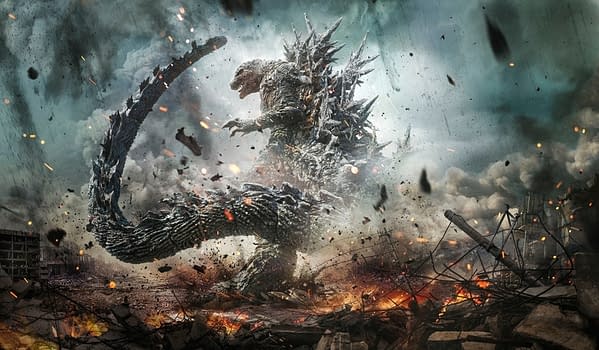
Godzilla Movies (from Japan) are Always About the State of Japan
It's also a commentary on how the Japanese feel now, especially about having an ineffectual government that abandons them in times of crisis. It shows up the Monarch movies and TV shows for the expensive, slick, and soulless mediocrities they are because they're about nothing. Godzilla Minus One is about real stakes. Every Japanese Godzilla movie is about the state of the nation. They reveal what the Japanese are thinking about their current situation. Shin Godzilla, the last Toho movie, was a political satire about the inertia of the Japanese government in the wake of a national disaster and how it's the outliers and geniuses who can think outside the box who can save the country. Godzilla Minus One is as much about the present as the post-War period. It feels like how the Japanese public feels now, despair over a government that may have neglected them in time of coming war, and how ordinary people have to figure out how to survive together. It's also a deeply Buddhist movie that's about karmic debt, the debt one man feels he owes to the people who died when he lived. The Monarch movies and shows are about humans and giant monsters looking cool and nothing else. Godzilla Minus One is about getting past the trauma of War and how peace is fragile and fleeting.
Think of Godzilla Minus One as the sequel to Oppenheimer. It's no less vital.
Godzilla Minus One is now in limited release in US theatres.




